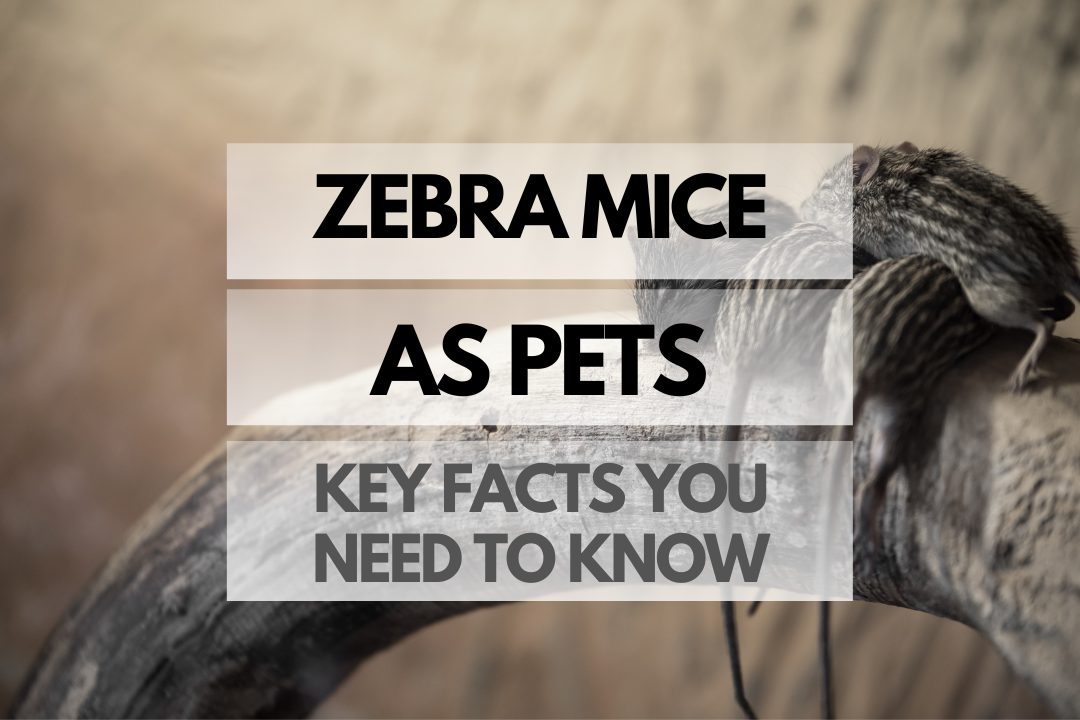Zebra Mice as Pets: Key Facts You Need to Know
Are you looking for a unique and adorable pet to bring into your life? Look no further than the zebra mouse! These tiny, energetic creatures are full of personality and make fantastic pets for those who are up for the challenge of keeping up with their zest for life. In this article, we’ll dive into everything you need to know about having zebra mice as petsso read on and get ready to be enchanted by these delightful little rodents!
Overview of Zebra Mice
| Common Name | Zebra Mouse |
|---|---|
| Scientific Name | Lemniscomys barbarus |
| Native To | Africa |
| Average Lifespan | 2-3 years |
| Size | 2.5-4 inches |
| Temperament | Active, curious, social |
How Are Zebra Mice as Pets?
Pros and Cons of Pet Zebra Mice
Pros:
- Small size makes them ideal for those with limited space
- Social and entertaining to watch
- Low odor compared to other rodents
- Unique and visually striking appearance
Cons:
- Can be skittish and difficult to handle
- Require a lot of mental stimulation and exercise
- Not as widely available as other pet rodents
- Shorter lifespan compared to some other rodent species
How Much Do Zebra Mice Cost?
Zebra mice can cost anywhere from $10 to $30, depending on factors such as age, color variety, and local availability. Keep in mind that you’ll also need to invest in a proper habitat, food, and other supplies, which can add up to an additional $75 to $150.
Quick Facts About Zebra Mice
Zebra Mice Lifespan: How Long Do Zebra Mice Live as Pets?
Zebra mice typically live for 2-3 years as pets, although some may live longer with proper care and a healthy diet.
Looks and Appearances
Zebra mice are named for their unique black and white striped fur, which resembles the pattern on a zebra’s coat. They have a sleek, slender body, large ears, and a long, thin tail.
Color Varieties
While the classic black and white striped pattern is the most common, zebra mice can also be found in other color varieties such as brown and white or albino.
Size
Zebra mice are small, with adults typically measuring between 2.5 and 4 inches in length, not including the tail.
Zebra Mice Temperament and Personality
Zebra mice are active, curious, and social creatures. They love to explore their environment and interact with their cage mates. They can be a bit skittish around people, but with patience and gentle handling, they may become more comfortable with human interaction.
Caring For Zebra Mice
Are Zebra Mice Easy to Care For?
Zebra mice are relatively easy to care for, but they do require a bit more attention and mental stimulation than some other rodent species. Providing them with a proper habitat, diet, and plenty of toys and activities to keep them entertained is essential to their well-being.
Habitat
Zebra mice need a spacious, well-ventilated cage with plenty of hiding spots and climbing opportunities. A wire cage with a solid bottom is ideal. Provide bedding made of paper or aspen shavings and avoid cedar or pine, as these can be harmful to their respiratory system.
Indoor or Outdoors?
Zebra mice should be kept indoors in a temperature-controlled environment, asthey are sensitive to extreme temperatures and humidity.
Primary Diet For Zebra Mice
Zebra mice should be fed a high-quality rodent food mix, along with small amounts of fresh fruits and vegetables. Avoid giving them too many high-fat or sugary treats, as this can lead to obesity and health issues.
Zebra Mice Treats
Occasional treats like mealworms, seeds, and small pieces of fruits or vegetables can be offered to your zebra mice, but remember to keep these treats in moderation.
Exercise
Provide your zebra mice with plenty of toys, wheels, and climbing structures to keep them entertained and physically active. Remember that they are very curious and intelligent animals, so rotate their toys regularly to keep them challenged and engaged.
Common Health Issues
Zebra mice can be prone to respiratory infections, obesity, and dental issues. Regular health checks and a proper diet can help prevent many of these issues. If you notice any signs of illness, consult your veterinarian for guidance.
Can Zebra Mice Live With Other Animals?
Zebra mice are social animals and thrive when housed with other zebra mice. Avoid housing them with different rodent species, as this can lead to aggression or other issues. If you have other pets, such as cats or dogs, always supervise interactions and keep them separate when you’re not around.
Zebra Mice Breeding Considerations
Breeding zebra mice should be approached with caution and only undertaken by experienced breeders. Providing adequate space, ensuring proper genetics, and understanding the responsibilities of caring for a potentially large number of offspring are all important considerations.
FAQ for Zebra Mice as Pets
- Are zebra mice good pets for kids?
- While zebra mice can be entertaining to watch, they may not be the best choice for young children due to their skittish nature and need for delicate handling. A more docile rodent species, such as a guinea pig, may be a better fit for families with young kids.
- Can zebra mice be litter-trained?
- Some zebra mice can be trained to use a designated area of their cage for waste, but success varies between individual mice. Be patient and consistent with your training efforts, and remember that not all zebra mice will take to litter training.
- Do zebra mice bite?
- Zebra mice are generally not aggressive, but they may bite if they feel threatened or scared. Handling them gently and calmly can help reduce the likelihood of bites.
- How many zebra mice should I get?
- As social animals, zebra mice should be kept in pairs or small groups of the same sex to ensure their mental well-being. Be prepared to separate them if aggression becomes an issue.

